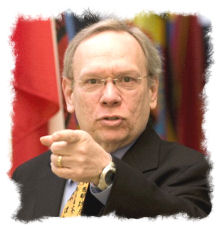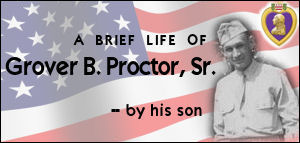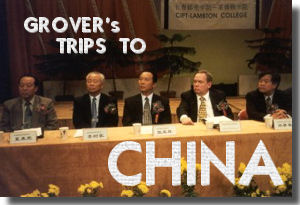|
Larry Howard, one of Oliver Stone's technical advisers for the new film JFK, is a man under fire. A researcher, archivist, and co-director of the JFK Assassination Information Center in Dallas, Howard is among the foremost critics of the Warren Commission's "lone nut" view that Lee Harvey Oswald alone assassinated President John F. Kennedy. Accustomed to scorn from those who disagree with him, Howard says he finds it hard to accept vilification from fellow critics of the Warren Commission. Howard spoke with me shortly after publication of several articles that contained particularly bitter recriminations, from friend and foe alike, against him. Stone first heard of him through Howard's investigation of claims by Ricky White that his father, a Dallas policeman, was involved in Kennedy's assassination. Allegations have surfaced that the story is false and that Howard was hired by Stone under false pretenses. "In July of '90," Howard said, "we had evidence that the story was true, evidence no one else had. So I put together a list of things that I obtained from Ricky White and all the evidence and faxed a copy to Oliver Stone. He immediately sent me airplane tickets for Ricky and me to fly to California to visit him. We told him the story, and he wanted to buy the story that night. He offered money to me, but I refused. He said nobody ever said no to him. I said there are two reasons I can't do it. One, the story needs to be investigated more to make sure everything we have here is true, and two, we're scared to death." Howard explained that Stone eventually hired him after visiting the JFK Assassination Information Center in Dallas. "Oliver flew to Dallas, met me at the Center, looked at the exhibits, looked at our archives, and hired me on the spot to be one of the major consultants for the film, disregarding the fax I sent him. None of the information in the movie came from the fax." His role as adviser, he said, included providing "400 photographs, 20 or 30 books, and I don't know how many videotapes and documents. But the key thing I furnished him was 23 key witnesses in this case (including Marina Oswald, the widow of the alleged assassin) to meet personally, one-on-one, that no one had access to but me." Even before the film premiered, Stone has been criticized for "fictionalizing" the assassination. Howard, who was on the set every day, saw it differently. "During the film making, Oliver asked me things like the exact license plate number on every car in the motorcade," he said. "He wanted the inspection stickers exactly like they were in 1963. He wanted the trees cut back to the size they were i n1963. He wanted the fence just right. The clock had to be just right at the Texas Theater, exactly on the minute. He wanted this to be as historically correct as it could be. But there are things we don't know. And it's not a documentary. It's a motion picture." The majority of the film takes place in New Orleans, through the eyes of former District Attorney Jim Garrison, whose book On the Trail of the Assassins inspired Stone. With some reservations, Howard still thinks using Garrison's controversial perspective that the assassination was the result of a massive conspiracy was right. "New Orleans was a hotbed where a lot of stuff originated," he said. "Even though Garrison may have been wrong on some of these things, he still found out things the House Select Committee [on Assassinations] even used." Unwilling to comment on whom he thought killed Kennedy, Howard said naming the assassin was not the intent of the movie anyway. "It's going to tell you why this happened," he said. "That's what the movie's about. If you pay attention in the movie, you're going to know who. And that's the way to handle it, because I can't tell you for sure who did it. I have my own opinion." He offers what at first sounds like a strange analysis of the case: that John Kennedy committed suicide. "In reality he did political suicide, pulling out of Vietnam, the Mafia (getting rid of them after they helped get him elected), dumping Lyndon Johnson on the '64 ticket, firing [CIA Director] Allen Dulles. He was fixing to retire [FBI Director] J. Edgar Hoover; he had just retired the head of the Secret Service; making peace overtures to [Cuba's Fidel] Castro and [the Soviet Union's Nikita] Khrushchev. "The real power base in this country decided he was a threat to national security and to worldwide peace. And they used rogue elements of the CIA and the Mafia, and some anti-Castro Cubans, to kill him, and used Oswald as a patsy, a lone nut, to cover it up. It was covered up at the very top. That's what happened." The internecine warfare that has erupted among Warren Commission critics does not surprise Howard, though he finds himself in the middle of it. "I told Oliver before we started this film, your problem is not going to be with the CIA or the FBI; it's going to be with the other researchers. And sure enough it was." Why is he being singled out? "Because I am the credibility for the movie. If Oliver Stone used us and the Center, and we can be destroyed or made to look like buffoons selling t-shirts, then he has no credibility." All in all, Howard says, JFK is a project he's glad to have been involved in. "I'm so happy this happened you can't believe it, and I haven't even seen the movie," he said. "There's no way it could come out to be anything but a plus for the investigation. Even if it was a bad movie, it would raise enough interest being a bad movie for people to want to find out more about it. "But it's going to be a good movie. I mean, how can you go wrong with Kevin Costner and Joe Pesci, and Oliver Stone directing, and the subject matter? You can't, unless Stone totally screwed it up. And he didn't. The guy's brilliant."
|
|
| PAGES & SITES OF INTEREST TO VISIT | |
| THESE ARE NOT PAID ADS. WE JUST SUGGEST YOU WILL LIKE THE SITES. | |
|
RETURN TO TOP |
| All content ©1995-2013. All rights reserved. |






